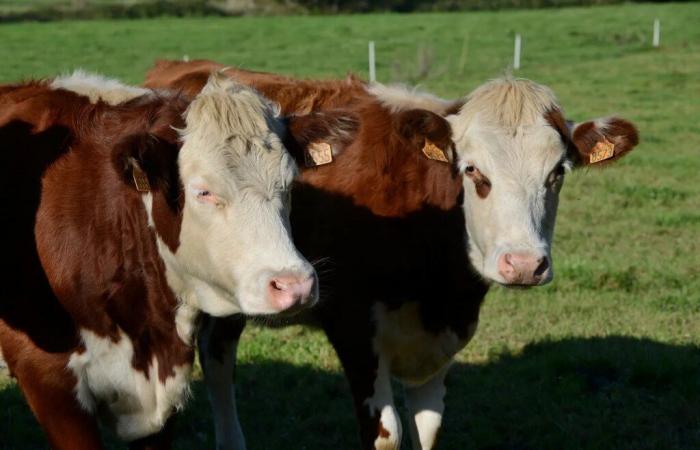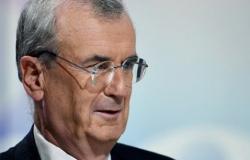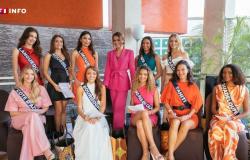11:13 a.m. by Dolorès CHARLES
Cattle breeding of 29
Credit : Yann Launay
After the announcement of the Mayennais giant Lactalis to part ways with numerous contract breeders, the latter are looking for new collectors. Report in Finistère at Laurence and André Rannou, based in Cast.
It was a month ago: Lactalis announced its decision to no longer collect milk from several hundred farms in France, including 150 in Brittany and Loire" rel="tag">Pays de la Loire… notably organic farms, like that of Laurence and André Rannou, based in Cast in Finistère. The demand for organic milk having decreased, manufacturers like the Mayenne giant are downgrading organic milk, mixing it with conventional milk, while they buy it more expensively from the producer.
That an industrialist decides where we do organic and where we no longer do it revolts me a little.
In fact, Lactalis would agree to continue collecting milk from Laurence and André, on the condition that they stop organic and return to conventional production. Unacceptable for breeders who refuse this step backwards. “We have a resilient model, we do not use pesticides in line with a certain number of values such as leaving a clean planet for our children but thinking that our work is not valued and that we could continue to make milk and be paid conventionally, reusing products that we no longer use, that doesn't work. It is also a bad signal in a context where we hear a lot about global warming. That an industrialist decides where we do organic and where we no longer do it revolts me a little.”
Credit : Yann Launay
Staying organic by selling their milk at the price of conventional milk, Laurence and André refuse it for ethical and economic reasons: conventionally, they would sell their milk for around 450 euros per 1000 liters, while the fair price is closer to 600 euros per ton.
A feeling of injustice
“Cows produce less milk in organic farming: we have a grassy model, they eat 90% grass in the rations, but ultimately we produce less per cow than a conventional breeder. As a result, the economic model does not hold up! However, we are virtuous, we have made production choices, which mean that there is no need to clean up the pollution behind and I find that this is not valued. There is a feeling of injustice, which is all the more true since we wanted to switch to organic farming a very long time ago but as there was no milk collection in our sector this did not happen. not done, and then pushed by consumers and demand, collection became possible but today again, this is no longer possible!”
Credit : Yann Launay

Laurence Rannou
Credit : Yann Launay
Supported by the Seine et Loire group of organic producers, and by the Invitation à la Ferme network, Laurence and André began looking for a new collector, to replace Lactalis. “In our territory, we see milk trucks passing in front of our house. We know that there are dairies that collect some of our colleagues. We are going to get closer to these dairies and we are confident because our milk is of quality… but the context is not good particularly because the consumption of milk and dairy products is decreasing in France…
To make butter, you need milk
Manufacturers also work on products with high added value, buying milk to make milk powder and sending it to the four corners of the world is more profitable, so we have less need for French milk. However, it's funny since we hear that we risk having a shortage of butter. But to make butter, you need milk.”

Rannou breeding in Cast (29)
Credit : Yann Launay
Laurence and André have been transforming part of their milk into yogurts for two years, directly on the farm, but it is impossible to transform all of their milk and do without dairy. In the West, several collectors have announced that they will be able to take over the farms let go by Lactalis, but a takeover of all the breeders remains very hypothetical.






